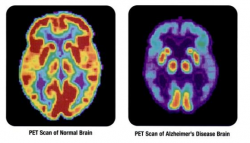Editor’s note: For more on engaging patients to be active participants in their own care, see the February issue of Health Affairs, “New Era Of Patient Engagement.”
It is as natural for doctors, hospitals, health plans and others to aggressively affirm their “patient-centeredness” as it is for politicians to loudly proclaim their fealty to the hard-working American middle class. Like the politicians, the health care professionals no doubt believe every word they say.
Editor’s note: For more on engaging patients to be active participants in their own care, see the February issue of Health Affairs, “New Era Of Patient Engagement.”
It is as natural for doctors, hospitals, health plans and others to aggressively affirm their “patient-centeredness” as it is for politicians to loudly proclaim their fealty to the hard-working American middle class. Like the politicians, the health care professionals no doubt believe every word they say.
The most accurate measure of “patient-centered” care, however, lies not in intentions but implementation. Ask one simple question – what effect does this policy have on patients’ ability to control their own lives? – and you start to separate the revolutionary from the repackaged. “A reform is a correction of abuses,” the 19th-century British Parliament member Edward Bulwer-Lytton noted. “A revolution is a transfer of power.”
With that in mind, which purportedly patient-centric policy proposals portend a true power shift, and which are flying a false flag?
Falling Short Of Shifting Power
The two most prominent examples of initiatives whose names suggest power sharing but whose reality is quite different are so-called “consumer-driven health plans” (CDHP) and the “patient-centered medical home” (PCMH). Both may be worthy policies on their merits, but their names are public relations spin designed to put a more attractive public face on “defined contribution health insurance” and “increased primary-care reimbursement.
Consumer-driven health plans. CDHP are to genuine medical consumerism what beer ads are to understanding how a man can become irresistibly attractive to gorgeous women. Buy the right brand of “lite” beer and light up your sex life. Whisk away that $250 deductible and 80-20 coinsurance, substitute a $10,000 health savings account and health care costs will come tumbling down. If only it were that easy.
CDHP and the beer ads begin from a similar premise: market signals are important, whether in medicine (health care services cost money) or romance (I am not a dork). But just as real-life women require more information than a man’s beer preference before deciding to get up close and personal, so, too, do real-life medical consumers need to understand much more about a health care service than its price tag to make the right personal medical decision.
Unfortunately, while CDHP puts some consumers in the driver’s seat, others are left lost and vulnerable. In a California survey, one in five CDHP members “had delayed or avoided a preventive office visit, test or screening because of cost,” not knowing preventive services were covered. A separate analysis of a national group of studies of CDHP members found a decline in cancer screenings. And at the recent AcademyHealth National Health Policy Conference, a consultant to the American Board of Internal Medicine said consumer focus groups found that while CDHP made some consumers better shoppers for medical care, it caused others to avoid seeking care even for acute injuries to their children.
Does use of CDHP reduce medical expenditures? The evidence says it has a modest impact, though the possible side effects for some consumers remain troubling. Is it patient-centered? Not right now, though plans are evolving. Was CDHP “driven” by consumers so happy to have their guaranteed pensions replaced by 401(k) plans and a bet on the stock market that they demanded the identical “defined contribution” deal for their health insurance? The question answers itself.
The patient-centered medical home. PCMH, meanwhile, is the direct descendant of the “medical home” proposed by the American Academy of Pediatrics in 1967. That same year the Beatles released their Sgt. Pepper’s Lonely Hearts Club Band album on Mono and Stereo LP and promoted it with an appearance on American Bandstand. The PCMH needs some updating for the digital age.
On the Sgt. Pepper album, Paul McCartney asks what will happen “When I’m Sixty-Four.” Although Sir Paul long ago passed that milestone, here’s what he might expect at a PCMH practice: a “whole person orientation,” care coordination and a series of other approaches that involve “care for all stages of life: acute care, chronic care, preventive services and end of life care.”
Certainly, primary care physicians deserve kudos and cash for care coordination. But how patient-centered is the PCMH? Alas, a recent survey of nearly 400 physician practices nationwide found “no association between PCMH processes and patient experience.” Others, too, have noted that patients do not seem as happy with this shift as many doctors.
Meanwhile, some medical specialists are starting their own “medical homes,” leading to jargon proliferation (“the patient-centered medical neighborhood”), but not necessarily a different role for the patient. Let’s go back to that digital upgrade.
I find myself wondering how receptive either the “home” or the “neighbors” will be to patients like Hugo Campos, who insists on direct access to the data from his cardiac defibrillator. Will his physicians jointly contact the defibrillator company to say that Hugo has as much right to the data as the doctors do? Come to think of it, how would these doctors even deal with streams of data from possibly hundreds of patients if they were entrusted with it?
What happens when the patient brings “home” his data from PatientsLikeMe? Or wants to put patient-generated (and analyzed) information from his Fitbit into the medical record? Or include her last visit to the chiropractor and acupuncturist? Will the doctor’s reaction be something like the first time a teenager asks his parents for the keys to the family car?
Put starkly, while you use my name, is the “patient-centered” medical home truly my home or your payment model, where I’m just along for the ride?
True Power Shifts
If the above represent pretend patient-centeredness, what initiatives do meet the transfer of power test (a notably tougher hurdle than the 2001 Institute of Medicine definition)? Let me cite two examples.
OpenNotes. The OpenNotes initiative declares quite simply that every notation the doctor makes during the patient’s visit can not only be seen by the patient, but commented upon. As the president of Beth Israel Deaconess Medical Center in Boston put it, “Everything that we have and know about you as a patient, you should have access to.” It’s no surprise that this extraordinary project has attracted widespread attention in and out of medicine.
If “information is power,” what can be a more complete sharing of power by medical professionals than this? It is a genuinely revolutionary gesture as free of economic motivation and as rooted in relationship change as CDHP and PCMH are rooted in economic intent and use the language of changed relationships as a tool.
The patient-activated rapid response team. There is one sharing of power that is even greater than the complete sharing of information, and that is sharing the power to act on the information. Perhaps the best example of that ultimate act of partnership is the patient-activated rapid response team.
A brief digression: the RRT arose out of the quality improvement movement. The idea is that when the condition of a patient on a medical or surgical floor seems to be deteriorating, the nurse can quickly summon a trained team to intervene. That early intervention is intended to preempt the need for costlier intensive care and to save lives.
The evidence on the benefits of provider-activated RRTs has turned out to be equivocal. But patient-activated RRTs have another, profound role that the traditional policy view has not encompassed. They are a way for the patient’s family to summon medical help, to “call 911,” even though a nurse or resident may believe there’s no cause to act – or, tragically, feels constrained by the hospital hierarchy not to act.
A hospital that puts in a patient-activated RRT or similar mechanism may or may not be improving the cost or quality of care, but it is certainly making a powerful ethical statement. In the midst of the confusing “doctor’s workshop” that is the hospital, the patient-activated RRT is a reminder that the patient rights slogan, “Nothing about me without me” is not merely about “preferences” or “values,” but can be literally a matter of life and death. Just ask Helen Haskell, founder of Mothers Against Medical Error, or the other moms who have helplessly watched their child die in the hospital from what is politely known as an “adverse event.”
Health Care Reform vs. Health Care Revolution
Yes, economic incentives that target the patient-as-consumer are important. We do need better information about the appropriateness, quality and price of suggested clinical interventions. Yes, primary care physicians and their teams should be rewarded for care coordination that leads to better health and health care once the evidence shows that it actually does. And, yes, patient “engagement,” “activation” and “empowerment” all need to be balanced with the accountability and responsibility that accompany sharing power, albeit with the terms defined by patients as well as providers.
Yet while the Patient Protection and Affordable Care Act contains numerous provisions trying to move patient-centeredness to center stage, true patient-centeredness is not health care reform, but health care revolution. Just read the postings from patients and professionals alike on the listserv of the Society for Participatory Medicine in order to see that disruption, not dainty half-steps, is the real agenda.
The task of building a truly patient-centric health care system brings with it a transfer of power that will uproot the established order from the exam room to the boardroom. Unsettling though that prospect may be, in the end pall of us will be better off. The old culture will give way to a new, Information Age culture that will bolster the “moral and cognitive bases” of medical professionalism by anchoring them, finally, in genuine power sharing and equal partnership.
If you like this post, please read other posts in the series on the Person-Centered HealthCare main page. And if you have a story to tell that may be a fit with our series, please comment below or email me at joan@socialmediatoday.com








